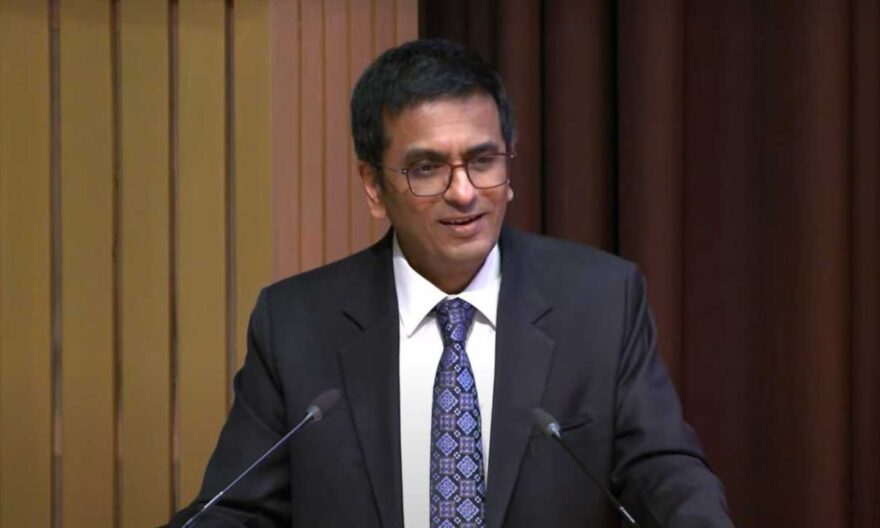
Chief Justice of India DY Chandrachud has stated that judges, though not elected, have a very vital role to play because the judiciary has a “stabilizing influence” in the evolution of societies which are rapidly changing with technology.
He responded to the most common criticism that unelected judges should not venture into executive’s domain. He made the observations while speaking in the 3rd Comparative Constitutional Law discussion co-hosted by the Georgetown University Law Center, Washington and the Society for Democratic Rights, New Delhi on the topic- ‘Perspectives from the Supreme Courts of India and the United States’.
The CJI stated, “I believe that judges have a very vital role to play though we are not elected. We don’t go back to the people every five years to seek their votes. But, there’s a reason for that… I do believe that the judiciary, in that sense, is a stabilising influence in the evolution of our societies, particularly in something like our age which is so rapidly changing with technology.”
The judges are the voice of something which must subsist beyond “the vicissitudes of time” and the courts have the ability to provide stabilising influence in the societies.
He stated, “I do believe that we have a role to play in the overall stability of our own civilizations, our own cultures, particularly in the context of a plural society, such as India.”
As part of a cultural and social background, the CJI stated that the courts have become focal points of engagement between civil society and the quest for social transformation.
“So, people approach the courts, not just for outcomes. Let’s be very clear, people approach the courts also for a voice in the process of constitutional change…,” he said. This is a complex question and there are several reasons as to why people come to courts more often, he said.
He stated, “It is very important for courts… because we are as many institutions of governance… of course there is the principle of the separation of powers. We don’t take upon ourselves the role of the legislature or we don’t take upon ourselves the role of the executive.”
He added, the courts are becoming places where people come in order to give vent to the expression for the society which they aspire to achieve.




